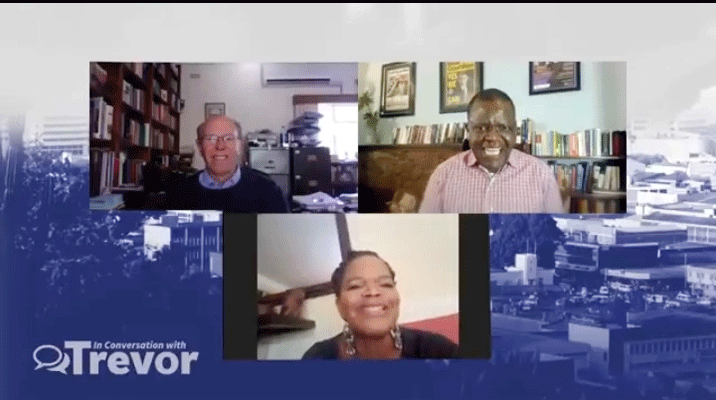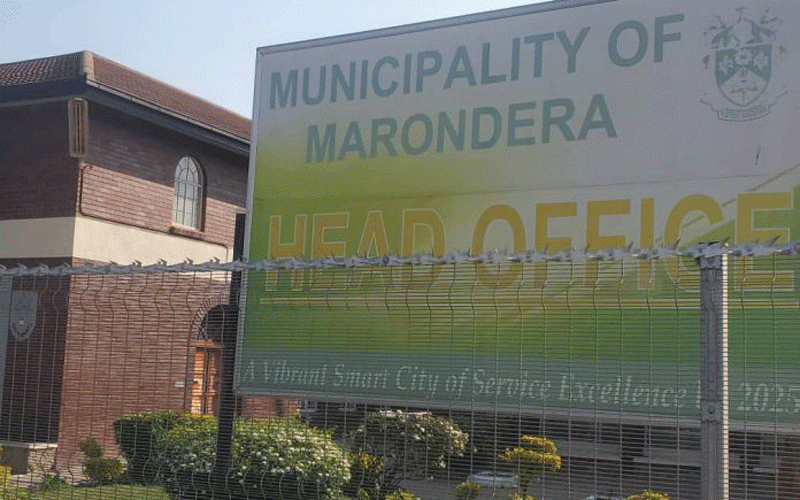
Top human rights lawyers Beatrice Mtetwa and David Coltart say President Emmerson Mnangagwa’s government is using the cover of the two-month-long lockdown to slow down the spread of coronavirus to trample on human rights.
Mtetwa (BM) and Coltart (DC) were guests on the latest episode of In Conversation with Trevor hosted by Alpha Media Holdings chairman Trevor Ncube (TN), where they spoke strongly against the alleged recent abduction and torture of MDC Alliance female activists by suspected state security agents.
They also raised questions about a plethora of regulations introduced by the government to enforce the lockdown, which they said infringed on human rights.
Below are excerpts from the interview.
TN: Let me start by focusing, first of all, Beatrice, on how the lockdown has affected your work and your life?
BM: As lawyers, we have been affected so much. We are not as able as before to run to hot spots. We have restrictions, particularly when we have to act on an urgent basis. We are not operating normally. Lockdown has come with a lot of violations.
TN: David Coltart, how has the lockdown affected your personal and professional life?
DC: My law firm has been shut down for six weeks and we are partially open now. That has impacted on ability to generate income. So the viability of the law firm has been seriously affected but as Beatrice has said, the lockdown has been used as cover to implement a variety of laws that are unconstitutional and draconian, which has seen a limitation of people’s fundamental rights.
- Chamisa under fire over US$120K donation
- Mavhunga puts DeMbare into Chibuku quarterfinals
- Pension funds bet on Cabora Bassa oilfields
- Councils defy govt fire tender directive
Keep Reading
TN: There is a sense that in a number of jurisdictions, the lockdown across the world is being challenged for a variety of reasons. What’s your view on the way our lockdown has been implemented? Are there certain instances where you have clients coming to you to challenge those issues?
BM: There are basic rights that are affected by the lockdown. People can’t exercise their normal freedom of movement and they can’t earn a living. We are in a jurisdiction where rights generally are disregarded even in normal times.
You can imagine how with the lockdown; a lot of law enforcement agents believe they now have the licence to do as they please and to completely disregard the fact that people still do have those constitutional rights that cannot be taken off through statutory instruments such as we have seen.
Clearly, we have had to challenge these because the government didn’t really think about some of the aspects of the lockdown that infringe on people’s rights and where you have a right to earn a living and you are told you can’t, that was not very well-thought-out in terms of the instruments that the government has issued so far.
TN: Somebody said that if you were not a democracy before Covid-19, you can’t be a democracy during lockdown.
BM: That’s a very apt way of putting it. We were struggling with enjoying rights even before Covid-19 and it has been a Godsend for some people because it means they can trample on rights.
They can fast-track certain things that they want to do without due process and it’s a very difficult moment for everybody.
Even for us human rights lawyers, we do accept that there has to be a limitation in so far as the protection of life is concerned.
You listen to some stories where people have to live with a dead body in their homes for 24 hours because nobody wants to come and collect the body even before no one knows why the person died.
The government didn’t think through all of those issues clearly.
TN: David, on the challenges to the lockdown particularly in the Zimbabwean context, what are you seeing? What are your clients uncomfortable about? What is it that you have been asked to challenge?
DC: One of the major problems is that government didn’t consult adequately. For example, one of my complaints when the first lockdown was announced, it was on a Friday night and to be implemented at midnight on Sunday. Businesses need time.
Beatrice has mentioned fundamental human rights; we have seen the police using the lockdown as cover-up to do all sorts of things that would not be immediately exposed.
As human rights lawyers, we have to balance what the individual rights of citizens are against to protect the health of people.
My major concern has been the implementation of this decree that businesses must get their employees tested.
The test that government wants people to do is only useful for research, it has very little diagnostic benefit because you can be tested one day and come out negative, but can contract the virus the next day.
TN: Is there anything that you would like to add, Beatrice?
BM: It’s quite obvious that there are some elements in the rulership that are looking at this as a business opportunity.
The whole issue of testing, that’s government responsibility, not to ask struggling employers to do the testing.
It’s just a money-making exercise; we would like government to account for this.
I haven’t come across a single entity testing using Zimbabwean money, it’s all United States dollar-based and the majority of us don’t earn US dollars.
TN: Let’s be clear, David, my sense is that worldwide, government is providing testing for free. Am I right? Is that the sense that you are getting?
DC: I think you are absolutely right, Trevor. It’s more than just a sense, even in South Africa government is doing the testing, picking up the costs.
Our lawyers, our employees have been working from home. They have been protected.
They are required to be tested yet those who were working during lockdown are not being required to test.
Where is the logic that businesses whose employees have been protected are required to test?
TN: Beatrice, you wrote this open letter to President (Emmerson) Mnangagwa, a very powerful letter. Take me through what came to your mind when you wrote this letter.
BM: I was very closely involved with the (case of the) abduction of Jestina Mukoko. It is something I thought we would never see, where women are abducted and abused in the way that these young women were.
I am extremely angry because we were told that this would never happen in the new dispensation and when I wrote that letter, I was so angry when I read it the next day, I had to redo it.
These are people, some of whom that I have been in close contact with in the immediate past because they were oppressed like the rest of the people in Zimbabwe, and you would think they will understand that if a person has committed a crime you take them through due processes of taking them to the courts.
You don’t make them to disappear. There is no question that they were taken by uniformed police at a roadblock.
If someone tells you that they were not taken by state security agents they will just be lying to the nation. We don’t see a sense of urgency in government of getting to the bottom of it.
When a government does not come out strongly to say we are investigating this and tell us how people in their custody disappeared and were thereafter tortured, we are not breaking from what has been happening from the past 14 years. Instead we are escalating the torture and violence, especially on vulnerable groups like women.
TN: Beatrice, you were very specific, you were angry, but I think that letter captured the anger of many out there. You were very specific, you directed yourself to the commissioner of police, to the commander of the national army, speak to me about that.
BM: We have had, in the past two and a half years, incidents that it is known that members of the defence forces had committed atrocities, some in the public glare and nothing has been done to the perpetrators. These are the persons who are supposed to protect us. There is complete silence from these people.
For as long as there is silence, we will continue to have this, we need citizens to say they must be brought to book.
TN: There you are, David, a very strong response in the open letter to the president following the abduction of MDC politicians. Speak to me, David, about your own reaction to this and where we go from here.
DC: My reaction comes from the fact that we have had a long history of abductions, in our nation both pre-and post-independence and in my own professional experience. One of the first cases I handled in February 1983 was when a farmer came in to say his foreman had been detained by members of the Fifth Brigade and was never seen again. We tracked that person and we never found him. I have also had personal experiences; we have a long history in this. You heard what happened to Jestina, the worrying thing in the past year was a return to this type of policy.
Since January 2019 we have had 55 abductions, it involves a lot of people, teachers, we also have Peter Magombeyi.
No one is safe because the police have a right to arrest people, you can’t protect yourself from the police.
The fact that these were young women and they were sexually abused in a horrendous way and this marks a very worrying deterioration in the human rights situation in this country and that’s why people like Beatrice, who are not involved in partisan politics, need to speak out because this will not get drowned in partisan debate.
TN: David, an important point that you raised there, these three women were arrested by the police and the police did confirm and something happened, the police started denying arresting these people. But you raised a fundamental point, when the police arrest you, you cannot refuse otherwise it becomes a crime.
So you give in to the police who hand you over to people you don’t know.
DC: That’s why this is such a serious deterioration in the human rights in this country. The international community has picked up on this.
In the past week I have had a series of conversations with Helen Clarke, former prime minister of New Zealand, and she is outright, that not because these are women, but because everyone knows in civilised societies the police are there primarily to protect people.
They are there to uphold the law, not to put people into danger and not to break the law.
BM: Trevor, you can see that there is an attempted cover-up, when you get the national police spokesman being told not to give information unless he has cleared with the commissioner-general, it becomes quite obvious that there are attempts at covering up because there is no genuine credible story to tell and the only way to avoid an obvious mess-up by the police is withholding information.
We were told that the new dispensation would do things differently from the Mugabe dispensation. You cannot trust the politicians.
TN: Some of the gruesome details we know is that these ladies were forced to drink their urine, guns were used to simulate sexual intercourse, that’s shocking, that’s inhuman, Beatrice, talk to me about this.
BM: That is not new, maybe the gun. I think in 2000/2001, what they did to these women, they did to a woman in Mberengwa, during elections and her crime was that her husband was an active MDC member.
They used a log to simulate sexual intercourse, so this is not the first time, they are now using a gun, but it’s the same thing.
These are young women who have chosen to get into politics. It is also deliberate, that is a very serious curtailment of human rights. Clearly this is a way of limiting participation of women in politics.
What we are going to see now is the reduction of women wanting to participate in politics.
TN: These people that do these things continue to walk in the streets. The shocking thing is Jestina Mukoko went to the courts and eventually got paid. She knows that the people who do this are still in the system and that these people have actually been promoted.
DC: We focused on people who did the abductions and were responsible for the abuses of these women but there is another aspect to that, that has happened after.
Let’s focus on the comments of the minister of Justice and other government spokespersons; these women would have to be world-class actors to have acted out what they have said to people.
The point I am making is there are objective sources to point out they are telling the truth.
Despite that we have senior government ministers including the minister of Justice who has come up to say they are going to be arrested before they have even spoken about how these serious crimes are going to be investigated.
They have instead threatened these women.
There is this allegation that when the police started their investigations, they took photographs of these women and they have found their way into the public domain, I don’t know if it’s true.
Government in particular should take these allegations seriously.
What we would expect to see is an independent investigation set up, but you can’t have the police investigating themselves.
l “In Conversation With Trevor” is a weekly show broadcast on YouTube.com//InConversationWithTrevor. Please get your free YouTube subscription to this channel. The conversations are sponsored by Titan Law.









